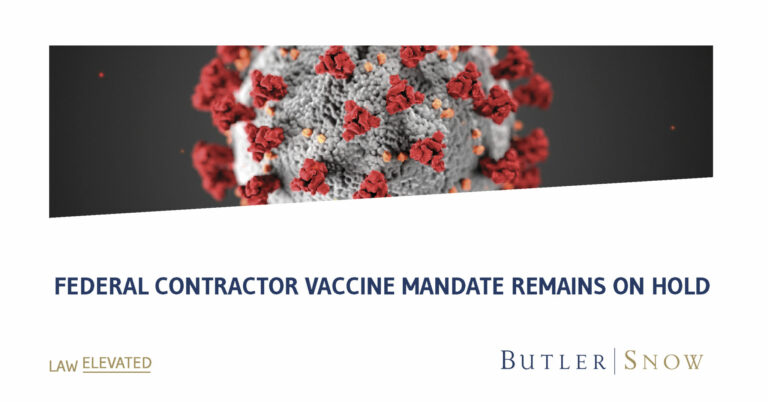Employers across the country were provided guidance on vaccine mandates by the United States Supreme Court (“SCOTUS”) last week. In a 6-3 decision, SCOTUS blocked the Department of Occupational Safety and Health Administration (OSHA) Emergency Temporary Standard (ETS) requiring private employers with 100 employees or more to vaccinate-or-test for COVID-19 from taking effect. In a separate decision, the Court allowed the Centers for Medicare and Medicaid Services (CMS) Interim Final Rule, requiring COVID-19 vaccination of staff working at health care facilities that receive Medicare and Medicaid money from the federal government, to remain in force. However, the Biden administration issued a third vaccine mandate, applicable to certain federal contractors, as part of its Path Out of the Pandemic initiative. The federal contractor mandate has been challenged, but it was not addressed in last week’s ruling from SCOTUS, and its fate remains uncertain. Following the events of recent days, federal contractors are no doubt wondering what will become of the mandate established by President Biden’s Executive Order 14042.
Status of the Federal Contractor Mandate
On December 7, 2021, in Georgia v. Biden, No. 1:21-cv-163, a federal judge in the United States District Court for the Southern District of Georgia issued a preliminary injunction barring enforcement of President Joe Biden’s Executive Order 14042 nationwide. Executive Order 14042 includes a vaccine mandate that applies to all federal contractors and subcontractors in covered contracts in any state or territory of the United States. Georgia v. Biden was brought by governors and various agencies of Georgia, Alabama, Idaho, Kansas, South Carolina, Utah, and West Virginia.
On December 13th, the federal government appealed the district court’s injunction to the Eleventh Circuit Court of Appeals in Georgia v. President, Case No. 21-14269-F (11th Cir. Dec. 17, 2021). The federal government also asked the Eleventh Circuit to stay the injunction issued by the district court, pending resolution of its appeal.
On December 17th, a three-judge panel of the Eleventh Circuit denied the federal government’s request for a stay of the district court’s injunction finding that the government had “not established one of ‘the most critical’ factors— that it will be irreparably injured absent a stay.”
On December 21, 2021, the Eleventh Circuit adopted a briefing schedule on the government’s appeal of the decision by the District Court to issue a nationwide stay of the federal contractor vaccine mandate. The Eleventh Circuit required the government to file its initial brief on January 3, 2022. The Plaintiffs and Intervenors were to file their answers on January 7, 2022, and any reply briefs were to be filed by January 24, 2022, with oral argument to occur during the next available setting.
Consequently, whether Executive Order 14042 will survive may not be clear until late February or early March (possibly even into April).
Bottom line
If you are a federal contractor with one or more contracts covered by Executive Order 14042, it is important that you remain prepared to comply with the mandate in the event the Eleventh Circuit upholds the mandate. Covered contractors should contact legal counsel and consider developing policies to collect employee vaccine information, but may delay requiring employee compliance with the mandate until the Eleventh Circuit makes a decision (and monitor any further appeals). Covered employers should continue to keep their employees informed on the status of the mandate, and for those covered contractors who have already had the federal contractor mandate clause added to existing agreements –be sure you communicate with your contracting officer regarding the injunction. Covered federal contractors should also be aware of any current or future requirements or restrictions pertaining to vaccines, masking, or other safety measures, which may be imposed by state or local law in all of their worksite locations.
Please stay tuned for further updates as we follow the case through the courts.
